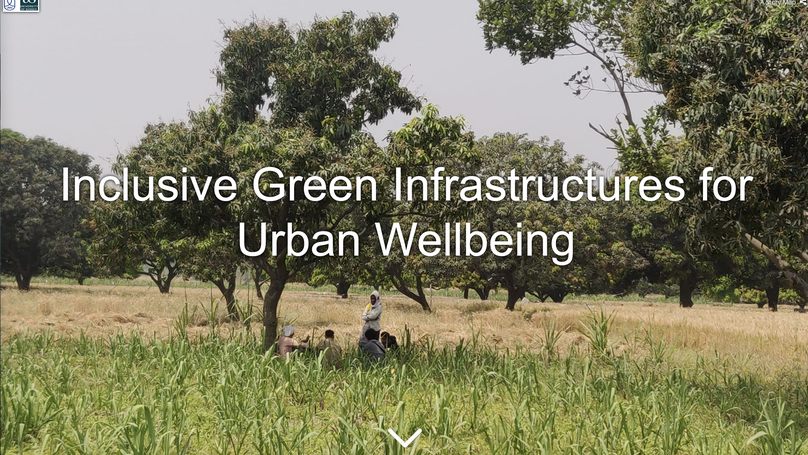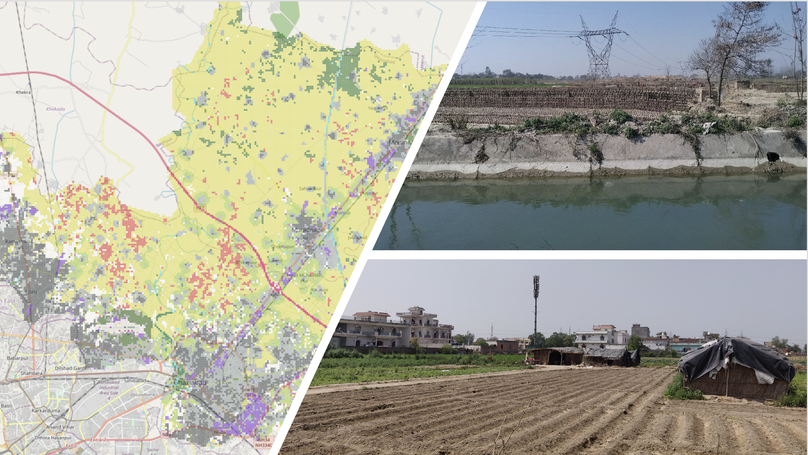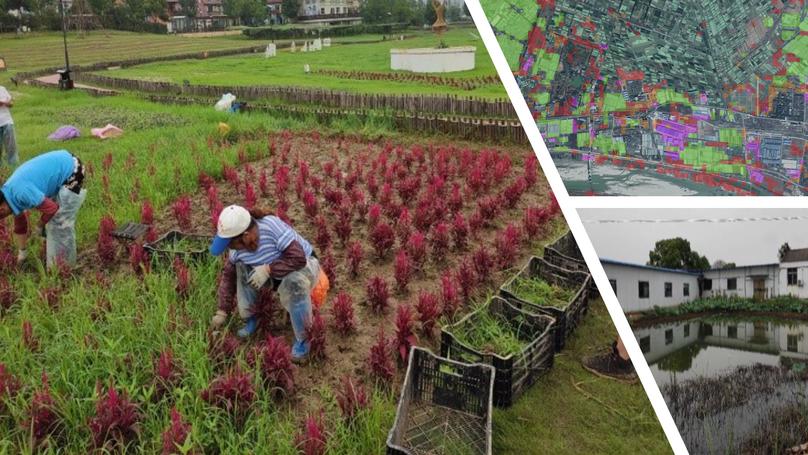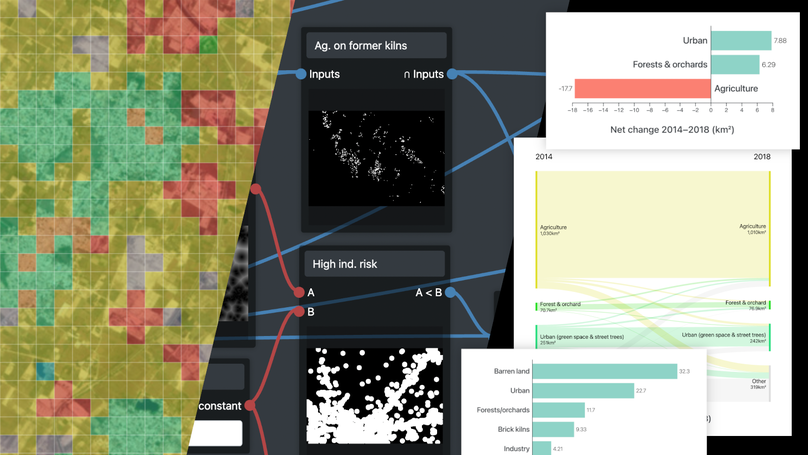Inclusive Green Infrastructures
“Inclusive Green Infrastructures for Urban Wellbeing” is an interdisciplinary research project funded by the British Academy Urban Infrastructures of Well-being Programme. Our research explores the interactions between urbanisation and green infrastructures and implications for wellbeing in Wuhan, China and Ghaziabad, India. The project combines development of a web-app for land-use change analysis alongside fieldwork with peri-urban farmers and residents in the two cities.
The web-app provides a novel approach to combining deep learning techniques with visual image analysis to map land-use change across multiple scales using satellite imagery. The deep learning integration is enabled via a data labeling interface (to generate training data) and a label correction interface (to evaluate and correct the results of the AI classifier). Presentation of land-use maps is facilitated through an interactive mapping interface and a modeling system enables spatiotemporal analysis on multiple map layers which can be viewed as overlays on the map or saved as new map layers.
Our hope is that the web-app can be used by others to support research and stakeholder engagement on urban sustainability policy and landscape management. It also has the potential to enable integration of citizen science methods and crowd sourced data analysis with new and evolving deep learning techniques for image analysis in many fields including and beyond land-use classification.
It is currently being used and further developed as part of a £12.5m pilot programme, ‘Nature-based Solutions for Climate Change at the Landscape Scale’. This is a Defra - BEIS project supported by the Treasury’s Shared Outcomes Fund and led by Natural England, Environment Agency, RBG Kew and the Forestry Commission.
Our project website presents details of the research, a description of the web-app and a summary of project outputs.
Science Policy Research Unit (SPRU) | Predictive Analytics Lab
Web-app
This research is funded by the British Academy’s Urban Infrastructures of Well-Being 2019 Programme, supported under the UK Government’s Global Challenges Research Fund



